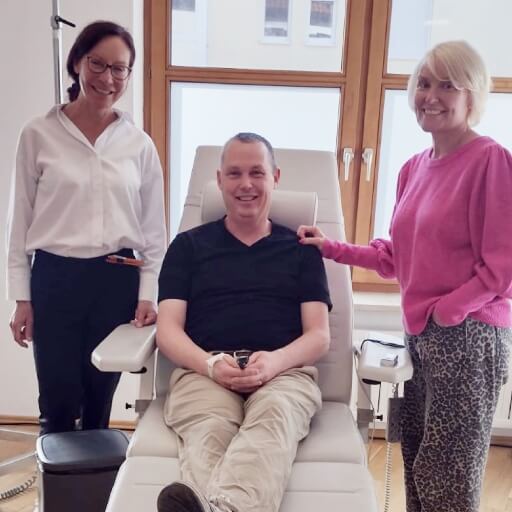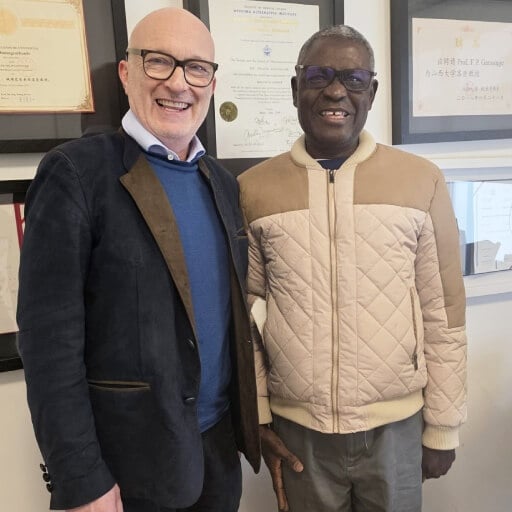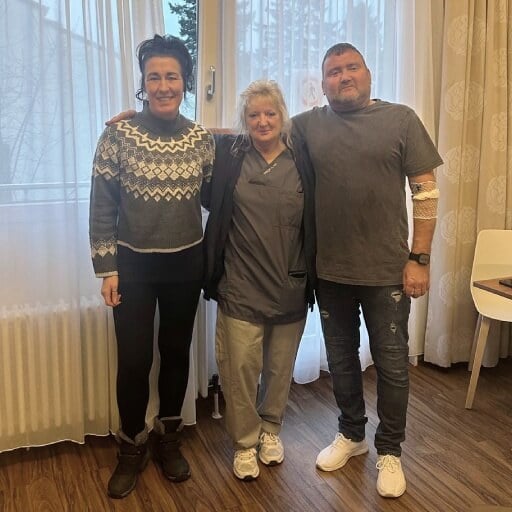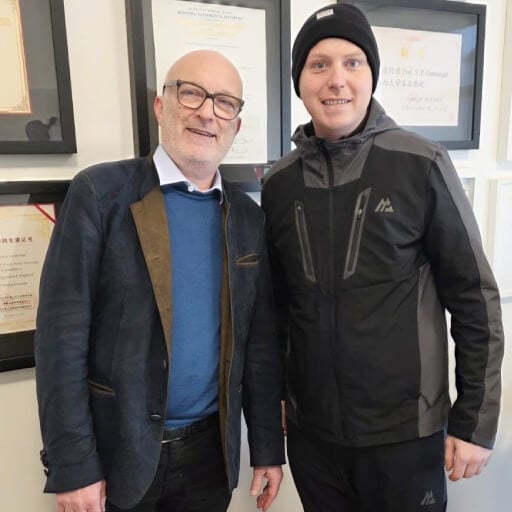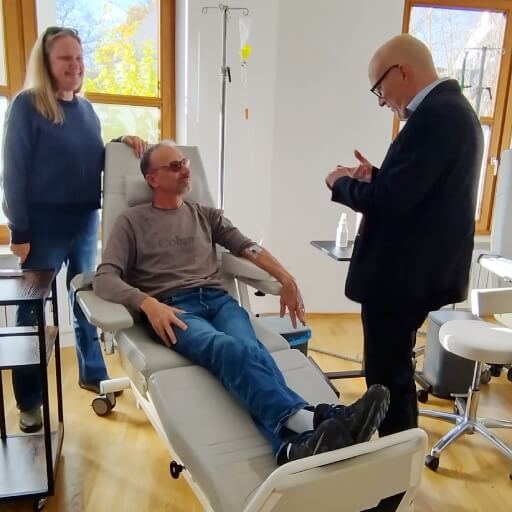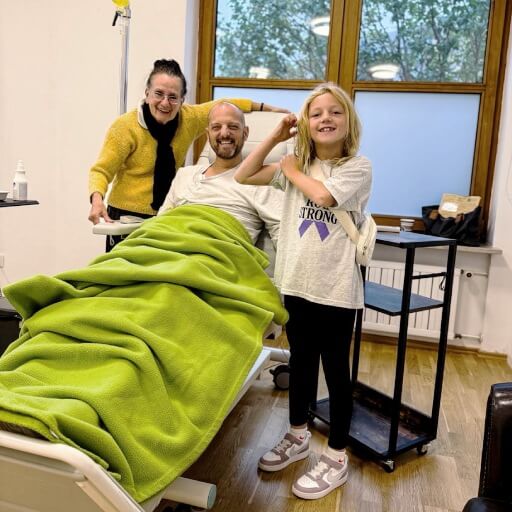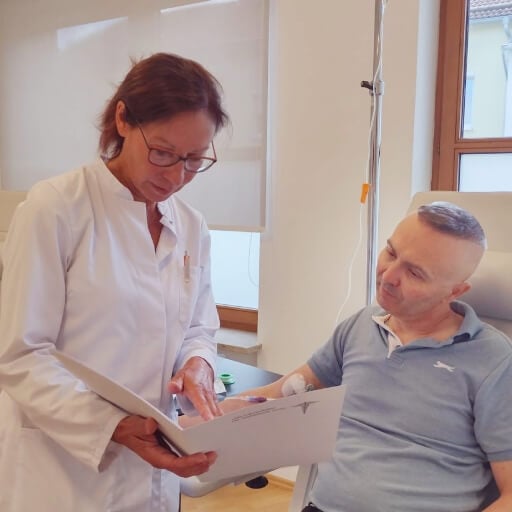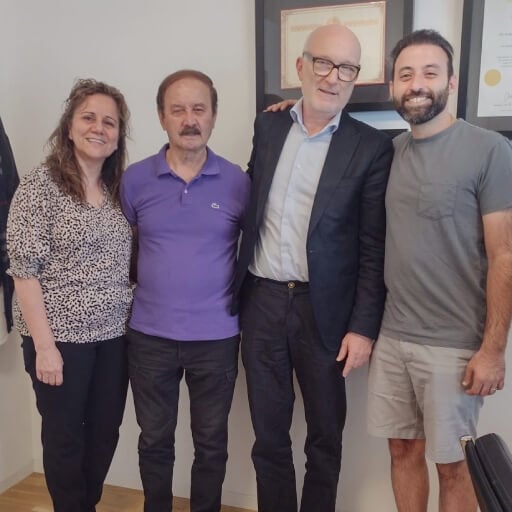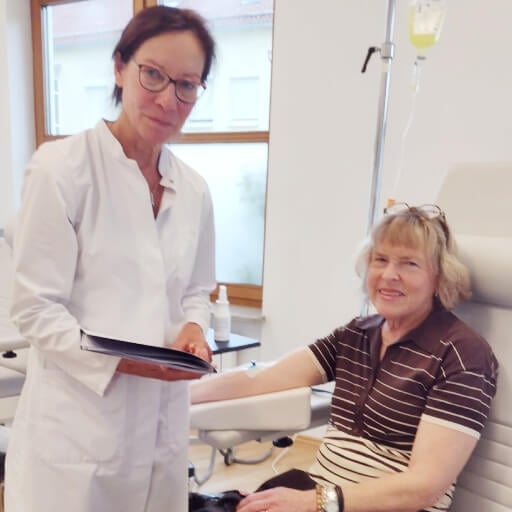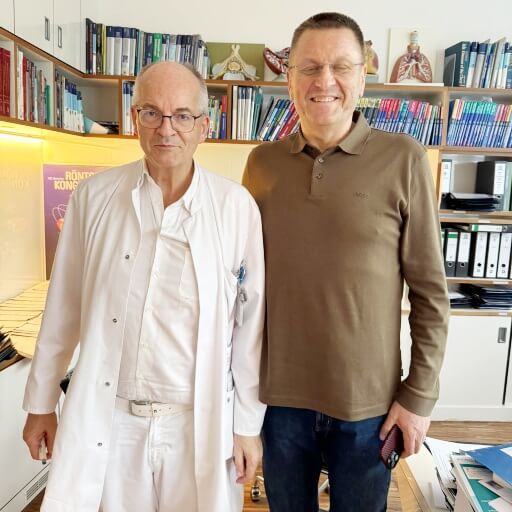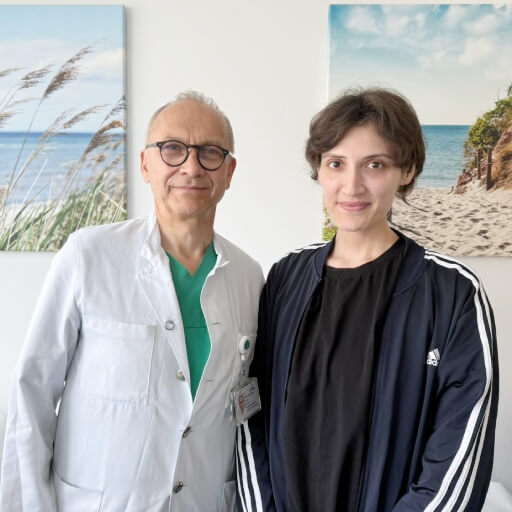According to official statistics from the WHO in 2022, oncological diseases are now the cause of one in every six deaths worldwide [1]. This has encouraged the international medical community to develop new advanced cancer treatment methods and increase the effectiveness of the already existing ones. This is particularly important for patients with late-stage cancer, where, due to the tumor's metastatic spreading, almost the entire body is affected.
In 2018, the Study of the Immune System in Patients with Malignancies [7] was awarded the Nobel Prize in Medicine [2]. The activation of a patient's own immunity and the training of his immune cells to recognize cancer cells is the basis of safe therapy for healthy tissues. This can be used even in the end-stage cancer. It is possible in customized treatment to adapt to the characteristics of the disease’s progression in a particular patient.
New effective treatments for stage 4 cancer are emerging from ongoing research in the world, impacting life expectancy and guiding consultants to recommend advanced screening and test procedures. These developments are raising awareness among patients and healthcare providers, while also prompting insurance companies to reevaluate coverage for emergency interventions, potentially improving access to cutting-edge therapies.
Principles of Stage 4 Cancer Treatment in Classical Medicine
Classical medicine offers many possibilities in the treatment of cancer, which can affect a malignant neoplasm directly or through a modification of the tumor’s microenvironment [3]:
- Surgical treatment includes total or partial tumor removal, as well as tissue sampling for a histological examination. At stage 4 cancer, these operations are rare. It is impossible to completely remove all metastases when cancer spreads into adjacent organs.
- Radiation therapy is performed to reduce the size of the malignant neoplasm or prevent relapse after surgery. Modern hospitals also provide stereotactic radiation therapy using the Gamma Knife or the CyberKnife systems. This is a targeted removal of cancer cells that does not require surgical intervention. The directed beam of ionizing radiation reaches the tumor through intact skin.
- Chemotherapy includes the prescription of drugs, which block the reproduction of cancer cells. Unfortunately, chemotherapeutic drugs also affect healthy tissues.
- Symptomatic treatment includes anesthetic therapy, antiemetic drugs rich in proteins, or parenteral nutrition. The symptomatic treatment does not eliminate the cause of the disease but improves the patient's quality of life to a certain point.
Depending on both the tumor type and the stage of the process, these methods can be used in monotherapy or combination (for example, radiation therapy is complemented by symptomatic treatment, surgery is followed by chemotherapy, etc.). Recent breakthroughs in treating cancer at stage 4 span multiple specialties, from hematology to neurology, with promising results in prostate, lung, colon, liver, pancreatic, ovarian, cervical, and bone cancers, as well as pediatric malignancies. Advanced imaging techniques, including high-resolution ultrasound, are enhancing early detection and treatment monitoring across these cancer types, offering new hope for patients with stage 4 disease.
Disadvantages and Limitations of Classical Medicine for in Stage 4 Cancer
Despite the extensive arsenal of classical techniques available and the vast practical experience of their use, the classical approach to cancer treatment has several limitations [4]. These include:
- Injury – to ensure surgical access to a tumor, the healthy tissues are inevitably destroyed. This is dangerous because the regeneration processes in stage 4 cancer patients are weak, and such patients are prone to infections.
- Toxicity – chemotherapy drugs inhibit the basic processes of cellular metabolism by destroying not only cancer cells but also healthy cells. Also, during chemotherapy, the bloodstream has the toxic decomposition products of cancer cells, which cause damage to the liver and kidneys.
- The impossibility of a complete recovery – in stage 4 cancer, a limited range of treatment methods is applied. All of these methods aim to suppress tumor growth and prolong life, but do not cure the patient.
- Suppression of the patient's immune system – T-cell and B-cell immunity are inhibited.
- High costs – often chemotherapy at stage 4 is carried out for several months or even years. For a patient who pays for the treatment himself, it becomes quite expensive. Surgical interventions, especially brain surgeries, also have high prices.
Considering the results of classical oncopathology treatment regimens for stage 4 cancer, scientists are developing new, more effective, and less traumatic therapeutic approaches for the body. New approaches are revolutionizing patient care, with nurses now trained to guide patients through both common and alternative therapies, while also educating them about the signs and symptoms, such as the presence of a lump, blood in stool, or chronic pain. These advancements have a significant impact on healthcare in state and private healthcare facilities.
Principles of Stage 4 Cancer Treatment Using Immunological Techniques (immunotherapy)
The main principle of this advanced treatment is the restoration of the body's own defenses, the immune system, and nonspecific antitumor mechanisms. The therapy provides a long-term result and the complete elimination of cancer cells. In classical medicine, the tumor and its metastases are removed artificially. However, alternative methods activate an "internal protection", which reveals metastases and groups of atypical cells, which may not be detected by even the most accurate medical equipment.
The conception of integrative medicine is characterized by the following aspects:
- Good tolerability, minimal side effects
- Targeted influence on cancer cells without affecting healthy tissues
- The possibility of use in patients with critical conditions (for example, with decreased kidney or liver function or allergies)
- Achievement of a good result even in stage 4 cancer with metastasis to body areas at a distance from the primary tumor
- Activation of the patient’s antitumor immunity, restoration of T and B cells’ ability to detect and destroy cancer cells
- Permanent results without the need for constantly repeated treatment courses
In leading European Cancer Centres, the doctors practice an integrated approach for the treatment of stage 4 cancer. In the Europe of the 21st century, the integrative approach includes potentially useful classical medical methods for the patient (for example, surgical removal of a tumor part) and complements these with alternative methods. It is a proven fact that the individual concept of comprehensive medical treatment gives the best clinical outcome.
Immunotherapy with dendritic cells has emerged as an innovative and promising immunological treatment for stage 4 cancer. Over the past decade, dendritic cell therapy has gained significant recognition among oncologists worldwide, with German medical centers being at the forefront of its development and implementation. The treatment is particularly well-tolerated, with minimal side effects compared to conventional therapies. The cost of dendritic cell immunotherapy typically ranges from 20,000 to 38,000 EUR, varying based on the complexity of the case and the need for additional therapeutic interventions.
To better understand this innovative treatment for stage 4 cancer, we spoke with Professor Frank Gansauge, one of the pioneers in dendritic cell therapy, who has been successfully implementing this method since 2001. His clinic has demonstrated significant success in treating various types of stage 4 cancer, including gastrointestinal tumors, prostate cancer, breast cancer, melanoma, and glioblastoma, with documented cases of extended survival rates and complete recovery.
Prof. Frank Gansauge: How Dendritic Cell Therapy is Transforming Modern Cancer Treatment
Therapeutic Hyperthermia for Stage 4 Cancer
Hyperthermia is the heating of a body part, an anatomical area, or the whole body to an effective temperature of 38-42 °C. The normal vessels and capillary networks do not have enough time to form in fast-growing malignancies. Therefore, with a temperature increase, their blood flow decreases to almost zero. Without an adequate blood supply, the tumor and metastases do not receive the necessary nutrients and are quickly destroyed by the influence of their own toxic metabolic products. During this procedure, the periods of the body heating and cooling alternate, so it is well tolerated by patients.
One of the innovative types of thermotherapy is laser-induced interstitial thermotherapy (LITT) [5]. This procedure is performed using specialized equipment– the Nd: YAG-laser, which consists of a neodymium-doped yttrium aluminum garnet crystal. With the help of a miniature fiberglass applicator, the doctor delivers laser radiation directly to the tumor. During the treatment, the temperature in the target area reaches between 60 °C and 110°C, which leads to the tumor’s destruction.
LITT procedure is successfully used in stage 4 cancer and inoperable tumors of the liver, kidneys, lungs, breast, prostate, and other organs. LITT also allows doctors to carefully destroy metastases in parenchymal organs and lymph nodes. This procedure is the treatment of choice in patients with metastases in the liver and lungs who may not survive after surgery.
The cost of a comprehensive medical program that includes hyperthermia and infusion therapy typically ranges between 18,000 and 19,000 euros, varying based on the hospital's level and the treating physician's expertise.
Infusion Therapy to Activate the Immune System in Stage 4 Cancer
Infusion therapy for stage 4 cancer includes the introduction of many substances:
- Regeneresen is a group of injectable drugs that restore the protein biosynthesis disturbed by the formation of a tumor. The high selectivity of RNA in the composition of the drug allows it to act precisely on the organs affected by cancer.
- Artesunate is a natural medication, the creation of which was awarded the Nobel Prize in 2015. The drug destroys cancer cells and blood vessels feeding the tumor.
- Curcumin is a natural plant pigment that causes tumor cell apoptosis and inhibits tumor metastasis. The reports of clinical investigations of curcumin in cancer treatment were published in Clinical Gastroenterology Hepatology and Molecules journals, as well as on the Australian Science Network website.
- GcMAF is a modified human protein involved in the activation of macrophages. These are the cells of the immune system responsible for recognizing and destroying atypical cancer cells.
- Hypericin is a red, vegetable pigment with the properties of an effective natural photosensitizer. Hypericin is used in photodynamic cancer therapy, which implies the destruction of pretreated atypical cells using laser radiation.
Depending on the type of malignancy and the results of histological diagnostics, other rare and specialized methods may also be used. The cost of a comprehensive treatment program that includes hyperthermia and infusion therapy typically ranges between 18,000 and 19,000 euros, varying based on the hospital's level and the treating physician's expertise.
Chemoembolization in Stage 4 Cancer Treatment
Transarterial chemoembolization (TACE) has a local effect on the tumor, using high dosages of chemotherapy drugs. Embolization is successfully used in the treatment of tumors with an active blood supply, for example, liver cancer, breast cancer, and colorectal tumors. Unlike classical systemic chemotherapy, chemoembolization [6]:
- Has a targeted effect on the tumor and, due to the localized action, is less toxic to the surrounding healthy tissues
- Provides a higher concentration of chemotherapeutic agents in the target area
- Has a longer effect because blood flow through the arteries is blocked, as a result of which medications cannot enter the systemic circulation
- Stimulates tumor necrosis and destruction by blocking the blood supply and depriving the tumor of the necessary nutrients
Due to its excellent tolerability, TACE is performed on an outpatient basis and requires only a short inpatient stay. At the preparation stage, doctors conduct angiography, which is a contrast radiography allowing for precise imaging of the tumor vessels. The leading cancer clinics use only angiography devices with high image accuracy since it is important to identify all sources of blood supply. Also, CT, MRI, and PET-CT results are taken into account.
During the procedure, a thin catheter is inserted into the femoral artery, which moves through the blood vessels and reaches the target area (for example, the hepatic artery). The next step is chemotherapy drug injection into the tumor. The artery is "blocked" with an embolus. There may also be used drug-coated microspheres (DEM), for example, LifePearl or HepaSphere microspheres.
Once TACE is completed, the catheter is removed and the femoral artery is covered with a pressure bandage for 3 hours. During the first few hours, the patient should stay in bed, after which he can return to his usual life. The next day after the intervention, the patient should have a follow-up CT scan to evaluate the effectiveness of treatment. If necessary, TACE will be repeated several times to completely block the smallest tumor vessels.
The cost of chemoembolization varies significantly, ranging from 6,500 to 24,000 EUR, depending on the hospital's level, the complexity of the case, and the tumor location. For instance, treating liver metastases is technically simpler and therefore less expensive than addressing adrenal metastases.
Prof. Kovács: When to Use DEB-TACE, Conventional TACE, or Radioembolization (TARE)
Regional chemotherapy for cancer stage 4
Regional chemotherapy overcomes a fundamental limitation of systemic treatment: drug dilution across the entire circulatory system, which means that only a part of it reaches tumors. This targeted approach isolates specific anatomical regions with the help of balloon catheters and creates closed treatment circuits where chemotherapy concentrations are 15-20 times higher than with conventional administration.
Regional chemotherapy for cancer treatment employs 3 specialized techniques. Doctors choose the one depending on the localization of metastases:
- isolated thoracic perfusion treats lung and mediastinal metastases;
- upper abdominal perfusion targets the liver and peritoneal spread;
- intraarterial infusion delivers continuous high-dose chemotherapy directly through tumor-feeding vessels, regardless of location.
Each method uses fluoroscopic guidance to position catheters precisely and ensure accurate regional isolation. What is important is that sophisticated blood filtration removes residual chemotherapy within 45 minutes after the procedure finishes. Patients treated in the morning often walk that same afternoon freely – what a contrast to conventional chemotherapy's side effects.
The cost of regional chemotherapy in Germany for stage 4 cancer is approximately 45,000 EUR; it depends on the healthcare facility and individual health aspects.
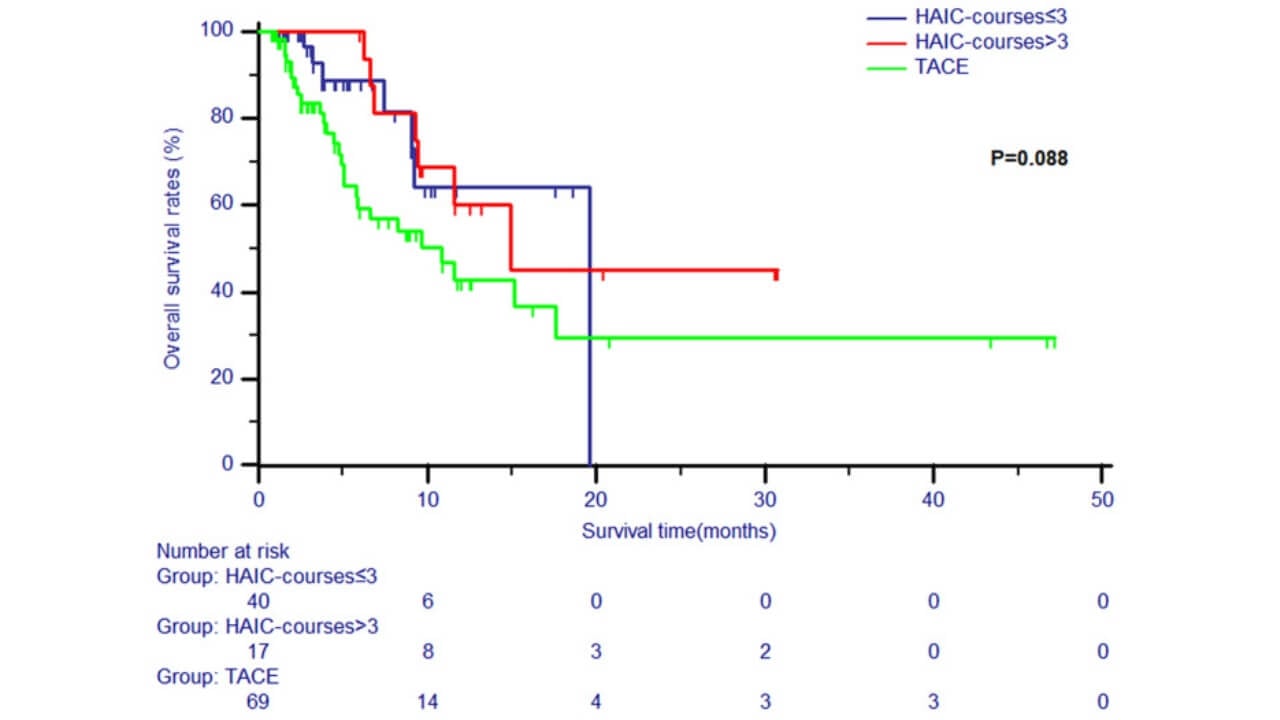
Electrochemotherapy for cancer stage 4
Electro-chemotherapy (ECT) was created to overcome resistance mechanisms that limit conventional chemotherapy's effectiveness. Cancer cell membranes block chemomolecules through selective permeability, and ECT temporarily removes this barrier, with the help of controlled electrical pulses.
The procedure positions specialized electrodes at calculated intervals around tumors, under imaging guidance. Computer-controlled generators deliver pulses synchronized with cardiac rhythm – preventing arrhythmia. Brief electrical fields create nanoscale temporary pores in tumor cell membranes. When pores are present, chemodrugs penetrate malignant cells at concentrations 70-80% higher than usual introduction permits.
German medical centers have refined this technique through thousands of procedures, learning which drugs penetrate optimally, which tumor types respond most dramatically, and how to combine electroporation with other methods, for synergistic effects. Treatment typically involves general anesthesia, it lasts 60-90 minutes. Most patients are discharged within 48 hours.
The cost of electrochemotherapy ranges from 7,500 to 12,000 EUR. Electrochemotherapy cost includes specialized equipment, imaging guidance, anesthesia, and multidisciplinary coordination – expertise concentrated in select European centers with demonstrated technical mastery.
Success Rates and Prognosis with Advanced Treatment Options for Stage 4 Cancer
The advancement of stage IV cancer treatment options has brought encouraging improvements and hope. Different therapeutic approaches show varying degrees of success, with some newer methods demonstrating particularly promising results.
| Treatment | 2-Year Survival Rate* | Response Rate** | Cost of treatment, €*** | Indications |
|---|---|---|---|---|
| Classical chemotherapy | up to 30% | up to 20% | 80,000 - 150,000 for the full course | diverse cancer types |
| Immunotherapy | up to 85% | up to 90% | 20,000 - 38,000 | diverse cancer types |
| Targeted therapies | up to 45% | up to 45% | 375,000 - 420,000 for the full course | diverse cancer types |
| LITT | up to 35% | up to 25% | on request | liver, brain tumors |
| CAR T-cell therapy | up to 50% | up to 40% | 450,000 - 550,000 | hematologic cancers |
| Hyperthermia + Immunotherapy | up to 45% | up to 75% | 20,000 - 38,000 | diverse cancer types |
| Chemoembolization | up to 50% | up to 80% | 6,500 - 24,000 | liver cancer, liver metastasis, breast cancer, etc. |
*Booking Health data. Survival rates vary widely depending on the type of cancer, the patient's condition, and specific circumstances.
**Booking Health data. Response rate is the number of patients who show improvement after treatment.
***The cost of treatment depends on the type of tumor, stage of cancer, and other factors.
Recent data suggest that success rates continue to improve as treatment protocols evolve and new combinations are discovered. Healthcare professionals now have more tools than ever to create personalized treatment plans and achieve better outcomes.
Leading International Options for Stage 4 Cancer Treatment
The treatment of stage 4 cancer has evolved, with international medical centers standing at the forefront of innovation, such as:
- MD Anderson Cancer Center (USA), which has revolutionized targeted therapy approaches through sophisticated molecular profiling
- German Cancer Research Center (DKFZ), which excels in personalized immunotherapy development
- Gustave Roussy Institute (France), which leads European immunotherapy research with complex protocols
In addition to immunotherapy, advanced treatment options for stage 4 disease now include proton beam therapy, which is available at specialized centers in Switzerland and Germany. Selected research hospitals worldwide are conducting promising CRISPR gene editing trials. New variants of CAR T-cell therapy are being tested in international clinical trial networks.
Specialized German clinics have gained particular recognition for the integrative treatment cancer stage 4 patients typically receive. It combines:
- Conventional and alternative stage 4 protocols working together
- Comprehensive approaches addressing both stage 4 disease and overall well-being
- Access to novel treatment options, clinical trials
- Personalized treatment plans based on molecular and genetic profiling
Treatment of Advanced Cancers in the Specialised German Clinics
Only a limited number of specialized Cancer Centers can offer patients with stage IV cancer the medical equipment and the services of qualified specialists for alternative therapy. The most significant results at stage 4 are demonstrated by the Clinic of Advanced Biological Medicine in Frankfurt am Main and its Head, Dr. Med. Gerhard Siebenhüner. Also, the Department of Adult and Paediatric Diagnostic, Interventional Radiology at the University Hospital Frankfurt am Main, with its Head Prof. Dr. Med. T. Vogl, leads the LITT and TACE areas.
The therapeutic methods are applied in the following sequence:
- Consultation and immunotherapy by Dr G. Siebenhüner, the course lasts five days
- Consultation with Prof. Vogl, TACE procedure planning
- Follow-up MRI and determination of the chemoembolization scope
- TACE procedure (up to twenty-five minutes per area)
- Inpatient monitoring for three hours, follow-up CT scan
- Repeated examination by Prof. Vogl, after which the patient can leave the clinic
- After one day of recovery, the TACE procedure will be repeated in another area (if necessary)
Another effective combination of treatments for stage 4 cancer is offered through the partnership of specialized immunotherapy centers and Prof. Dr. Med. Frank Gansauge's clinic. This program combines infusion immunotherapy with advanced dendritic cell treatment. The stage 4 treatment protocol includes:
- Initial consultation and blood collection for vaccine manufacturing
- Optional 7-day intensive immunotherapy course during the vaccine preparation period, including specialized infusions
- Comprehensive rehabilitation program including ergotherapy, oxygen treatments, and physiotherapy
- Follow-up examination and assessment of the patient's condition
- Administration of the personalized LANEX-DC dendritic cell vaccine
- Final consultation and development of further treatment recommendations
The complete program typically spans about 9 days, accounting for the time needed for vaccine preparation. The treatment plan is highly individualized and can be adjusted based on the patient's condition and response to therapy.
Fighting Cancer Together: Treatment Journeys with Booking Health
Indications for Comprehensive Therapy in Stage 4 Cancer
While stage four cancer has traditionally been considered incurable, modern combination therapies are changing this perspective. Recent clinical trials from 2022 to 2024 have documented cases of long-term remissions across various stage 4 cancer types, and even aggressive brain tumors like glioblastoma. These results are leading oncologists to cautiously discuss the possibility of such remissions becoming permanent cures.
Comprehensive therapy in stage 4 cancer has demonstrated significant efficacy in treating cancer at advanced stages, including:
- Bowel cancer
- Rectal cancer
- Pancreatic cancer
- Breast cancer
- Lung cancer
- Stomach cancer
- Uterine cancer
- Ovarian cancer
- Thyroid cancer
- Brain tumors, including glioblastoma
- Liver cancer
- Prostate cancer
- Cervical cancer
To determine the most appropriate treatment program, patients should consult with medical experts. Booking Health brings extensive expertise in international medical tourism, facilitating urgent appointments with leading specialists, providing comprehensive cost planning, and ensuring individual case evaluation by medical boards. Each patient receives personalized support through a dedicated medical coordinator and interpreter, with the complete organization of treatment.
The effectiveness of comprehensive treatment programs is best illustrated through the success stories of stage 4 cancer survivors. Diagnosed with stage 4 glioblastoma in January 2024, Daria Rogers received dendritic cell immunotherapy in Germany, combined with standard treatments. Against traditional prognoses, her follow-up MRI scans showed no evidence of cancer progression. "I wouldn't have been here sitting right now talking to you if it wasn't for dendritic cell treatment," shares Daria. You can watch Daria's full inspiring journey to recovery in our video interview.
Daria Rogers, Ireland: How Modern Cancer Treatment in Germany Changed My Glioblastoma Prognosis
The Organization of Stage 4 Cancer Treatment in Germany for International Patients
Both citizens of the country and international patients can undergo the comprehensive treatment of stage IV cancer in Germany. If you are seeking medical care from a foreign clinic for the first time, it will be safer and more effective to be in charge of the organization of treatment. Booking Health is a medical tourism operator that helps patients from seventy-five different countries undergo innovative stage 4 cancer treatments abroad.
With due consideration and all of the subtleties of care for patients with the fourth stage cancer, the Booking Health experts will help you with all the important issues:
- Confirmation of the appropriate choice of clinic and direct communication with the attending physician
- Preliminary preparation of the personalized treatment program, without repeating previous examinations
- Provision of a favorable cost of clinic services, without any extra charges and coefficients for foreigners (saving up to 50%)
- Doctor’s appointment on the desired date
- Control of the medical program at all its stages
- Assistance with buying and forwarding medicines
- Communication with the clinic after treatment completion
- Monitoring of invoices and return of any unspent funds
- Organization of any additional examinations
- Top-class service for booking hotels, airline tickets, transfers, and interpreting services
To get professional help in planning innovative cancer treatments abroad, leave your request on the official Booking Health website. A competent medical consultant will discuss with you all of the medical details and help you correctly prepare for the flight and treatment.
Frequently asked questions about stage 4 cancer
Send request for treatmentNew effective treatments for stage IV cancer include immunotherapies, targeted therapies, CAR T-cell therapy, and advanced radiation techniques such as proton therapy. These treatments aim to improve survival rates and quality of life by targeting cancer cells more precisely.
CAR T-cell therapy involves modifying a patient's T-cells to express chimeric antigen receptors (CARs) that can recognize and attack cancer cells. This personalized treatment boosts the immune system's ability to target and destroy cancer cells effectively.
Proton therapy provides highly precise radiation treatment, minimizing damage to surrounding healthy tissues. This is particularly beneficial for stage IV cancer patients, as it reduces side effects and allows for higher doses of radiation to be delivered directly to the tumor.
Yes, emerging targeted therapies are continuously being developed to target specific genetic mutations and proteins associated with cancer growth. These therapies offer a more personalized approach to treatment, potentially leading to better outcomes for stage IV cancer patients.
Patients can access these new treatments through specialized cancer centers and hospitals in Germany. Many clinics participate in international clinical trials, offering patients the opportunity to receive cutting-edge therapies. Consultation with a medical specialist is essential to determine eligibility and develop an appropriate treatment plan.
Treatment for stage four cancer typically involves a combination of approaches, including immunotherapy and dendritic cell vaccination, chemoembolization, and systemic chemotherapy, etc., with the specific protocol determined by the cancer type, location of metastases, and individual patient factors.
Stage 4 cancer often presents with chronic pain, sudden weight loss, weakness, shortness of breath, loss of appetite, blood in the stool or urine and enlarged lymph nodes. These symptoms indicate metastatic spread of the tumor and require immediate diagnosis.
In Germany, stage 4 cancer treatment costs from €6,500 (TACE) to €38,000 (immunotherapy or hyperthermia). In the UK and the US, prices are higher. In Australia, access to innovative methods such as CAR-T and dendritic cell therapy is still limited.
In stage 4 cancer chemotherapy provides up to ~30% two-year survival and up to ~20% response. It is indicated as a basic systemic method for a wide range of tumors; it is associated with high systemic toxicity (nausea, fatigue, cytopenias) and is used in multiple cycles to control progression.
Immunotherapy for stage 4 cancer demonstrates up to ~85% two-year survival and up to ~90% response in selected patients. The method is well tolerated, has minimal overall toxic effects compared to chemotherapy and is widely used in complex protocols for various tumor types.
Targeted therapy shows up to ~45% two-year survival and up to ~45% response, especially effective in the presence of appropriate molecular markers. This is a personalized approach with mild side effects that requires molecular profiling.
LITT for stage 4 cancer gives up to ~35% two-year survival and ~25% response for localized lesions (liver, brain, lungs). Advantages: minimally invasive local tumor destruction without major surgery. Side effects are usually local. Cost and duration are determined individually.
CAR T-cell therapy is an innovative method of treating stage 4 cancer that uses genetically modified immune cells from the patient. Survival rates reach 50% and response rates are 40%.
TACE provides up to 50% two-year survival and 80% response to therapy. In Germany, the course costs €6,500–24,000. It is a minimally invasive method for the treatment of liver tumors and metastases.
The highest effectiveness is demonstrated by immunotherapy (up to 85% survival), TACE (up to 50%), and CAR T-cell therapy (up to 50%). Their combination with hyperthermia or infusion therapy increases the effectiveness and improves the quality of life of patients even with widespread metastases.
Stage 4 cancer treatment focuses on disease control (rather than cure). Modern approaches include: immunotherapy, targeted drugs, hyperthermia and locoregional techniques (such as transarterial chemoembolization, or TACE) – these methods may slow progression, reduce symptoms and improve survival in selected patients.
Only a limited number of centers treat stage 4 cancer with advanced methods. The Clinic of Advanced Biological Medicine in Frankfurt, led by Dr. Gerhard Siebenhüner, has achieved strong results with innovative therapies.
Germany holds leading positions in the treatment of stage 4 cancer. Germany has specialized cancer centers, that provide access to innovative treatments and advanced medical equipment. German multidisciplinary teams are focused on managing advanced and treatment-resistant disease.
Choose treatment abroad and you will for sure get the best results!
Authors:
This article was edited by medical experts, board-certified doctors Dr. Nadezhda Ivanisova, and Dr. Bohdan Mykhalniuk. For the treatment of the conditions referred to in the article, you must consult a doctor; the information in the article is not intended for self-medication!
Our editorial policy, which details our commitment to accuracy and transparency, is available here. Click this link to review our policies.
Sources:
[1] World Health Organization. Cancer https://www.who.int/news-room/fact-sheets/detail/cancer
[2] Mark J Smyth, Michele WL Teng. 2018 Nobel Prize in physiology or medicine. Clin Transl Immunology. 2018 Oct 24;7(10):e1041. doi: 10.1002/cti2.1041. [DOI] [PMC free article]
[3] NIH, National Library of Medicine. Chapter 19 - PRINCIPLES OF ANTICANCER THERAPY. https://www.ncbi.nlm.nih.gov/books/NBK9546/
[4] Aasma Zafar, Summaiya Khatoon, Muhammad Jawad Khan et al. Advancements and limitations in traditional anti-cancer therapies: a comprehensive review of surgery, chemotherapy, radiation therapy, and hormonal therapy. Discov Oncol. 2025 Apr 24;16:607. doi: 10.1007/s12672-025-02198-8. [DOI] [PMC free article]
[5] Clark Chen, Ian Lee, Claudio Tatsui et al. Laser interstitial thermotherapy (LITT) for the treatment of tumors of the brain and spine: a brief review. J Neurooncol. 2021 Feb 21;151(3):429–442. doi: 10.1007/s11060-020-03652-z. [DOI] [PMC free article]
[6] Elliott L Fite, Mina S Makary. Transarterial Chemoembolization Treatment Paradigms for Hepatocellular Carcinoma. Cancers (Basel). 2024 Jul 1;16(13):2430. doi: 10.3390/cancers16132430. [DOI] [PMC free article]
[7] Xingxing Zang. 2018 Nobel Prize in medicine awarded to cancer immunotherapy: Immune checkpoint blockade – A personal account. Genes Dis. 2018 Oct 18;5(4):302–303. doi: 10.1016/j.gendis.2018.10.003. [DOI] [PMC free article]
[8] Cai Z, He C, Zhao C, Lin X. Survival Comparisons of Hepatic Arterial Infusion Chemotherapy and Transarterial Chemoembolization in Patients With Unresectable Intrahepatic Cholangiocarcinoma. Front Oncol. 2021 Apr 1;11:611118. doi: 10.3389/fonc.2021.611118. [DOI]
Article menu:
- Principles of Stage 4 Cancer Treatment in Classical Medicine
- Disadvantages and Limitations of Classical Medicine for in Stage 4 Cancer
- Principles of Stage 4 Cancer Treatment Using Immunological Techniques (immunotherapy)
- Therapeutic Hyperthermia for Stage 4 Cancer
- Infusion Therapy to Activate the Immune System in Stage 4 Cancer
- Chemoembolization in Stage 4 Cancer Treatment
- Regional chemotherapy for cancer stage 4
- Electrochemotherapy for cancer stage 4
- Success Rates and Prognosis with Advanced Treatment Options for Stage 4 Cancer
- Leading International Options for Stage 4 Cancer Treatment
- Treatment of Advanced Cancers in the Specialised German Clinics
- Indications for Comprehensive Therapy in Stage 4 Cancer
- The Organization of Stage 4 Cancer Treatment in Germany for International Patients
- Frequently asked questions about stage 4 cancer
Don't know where to start?
Contact Booking Health
